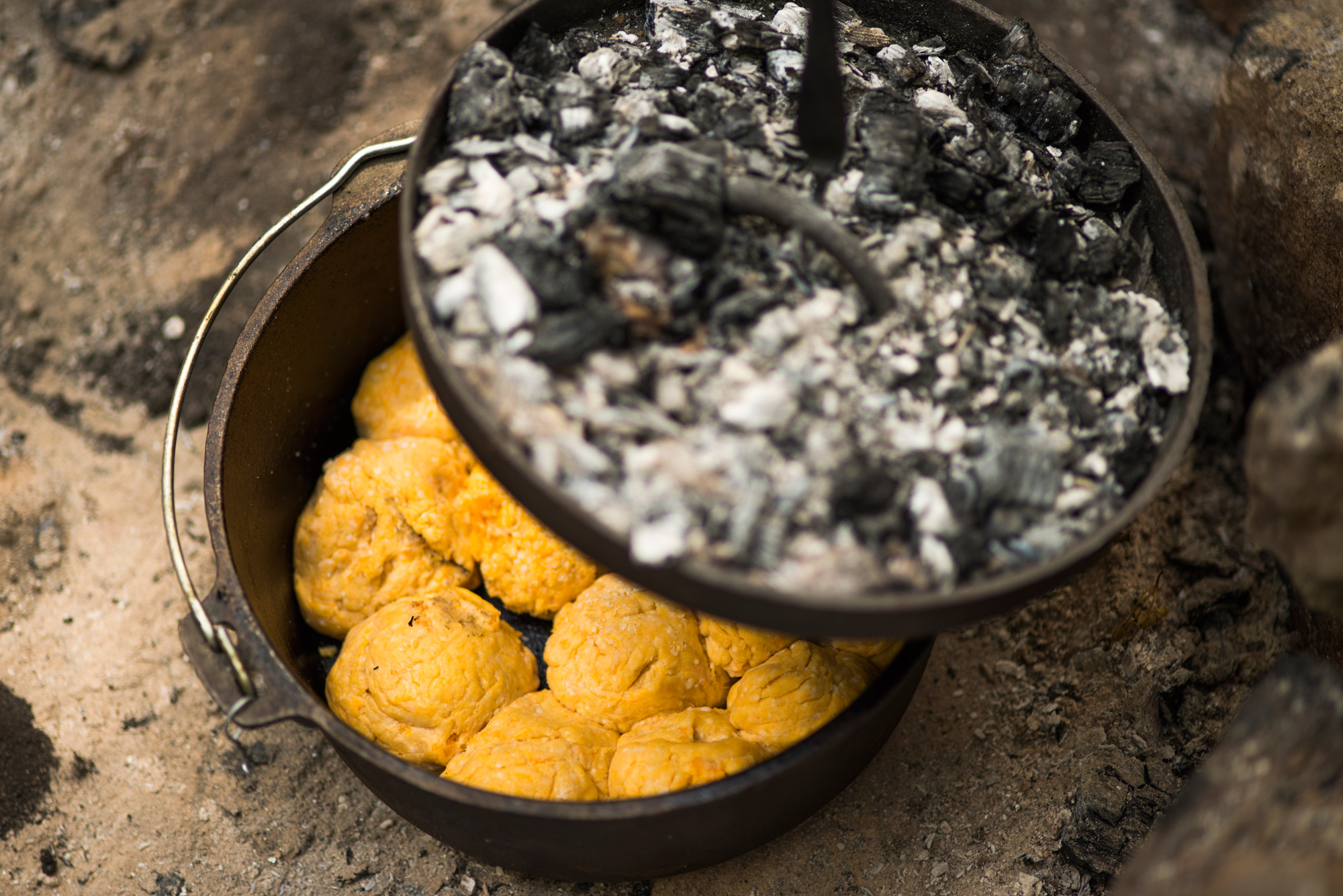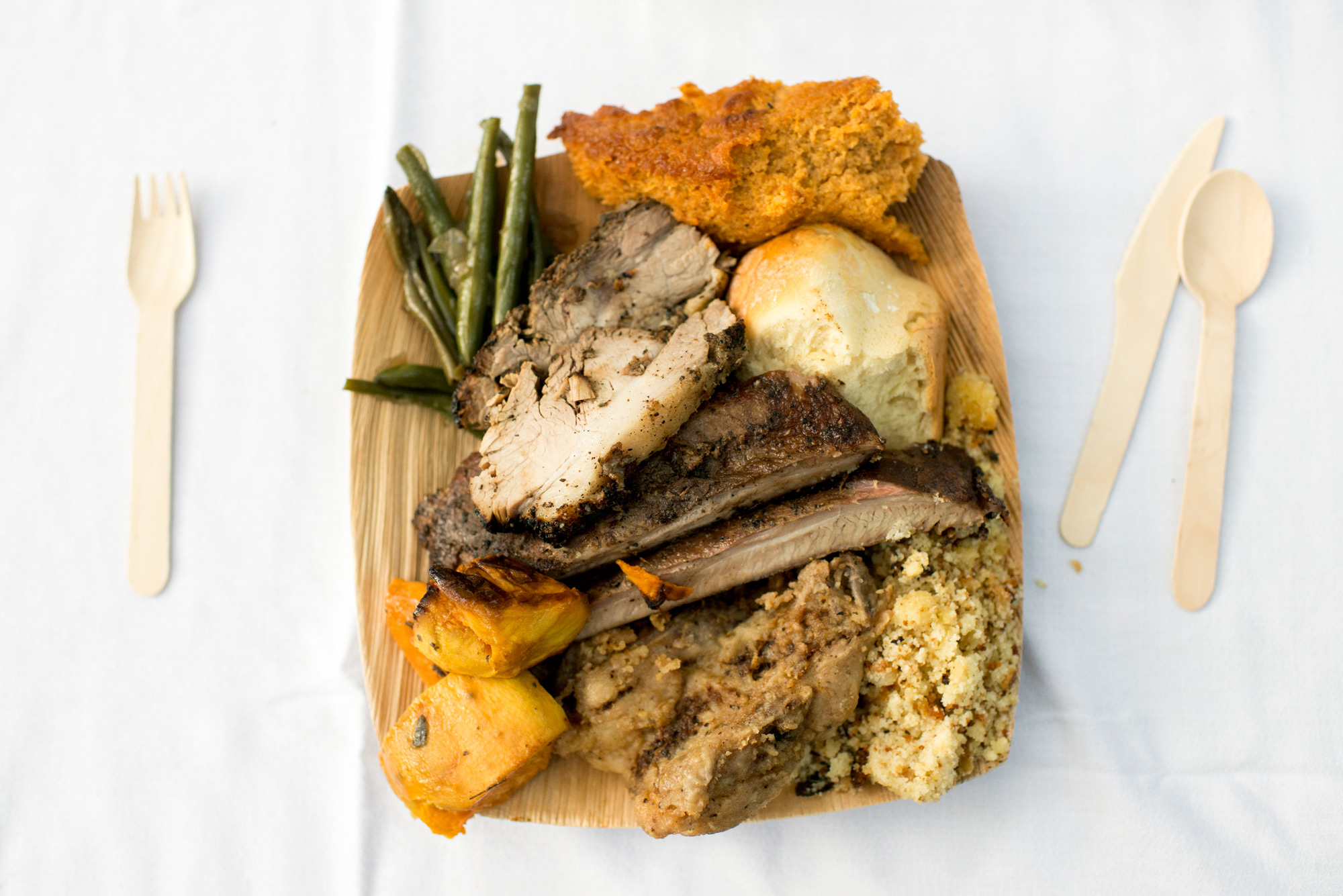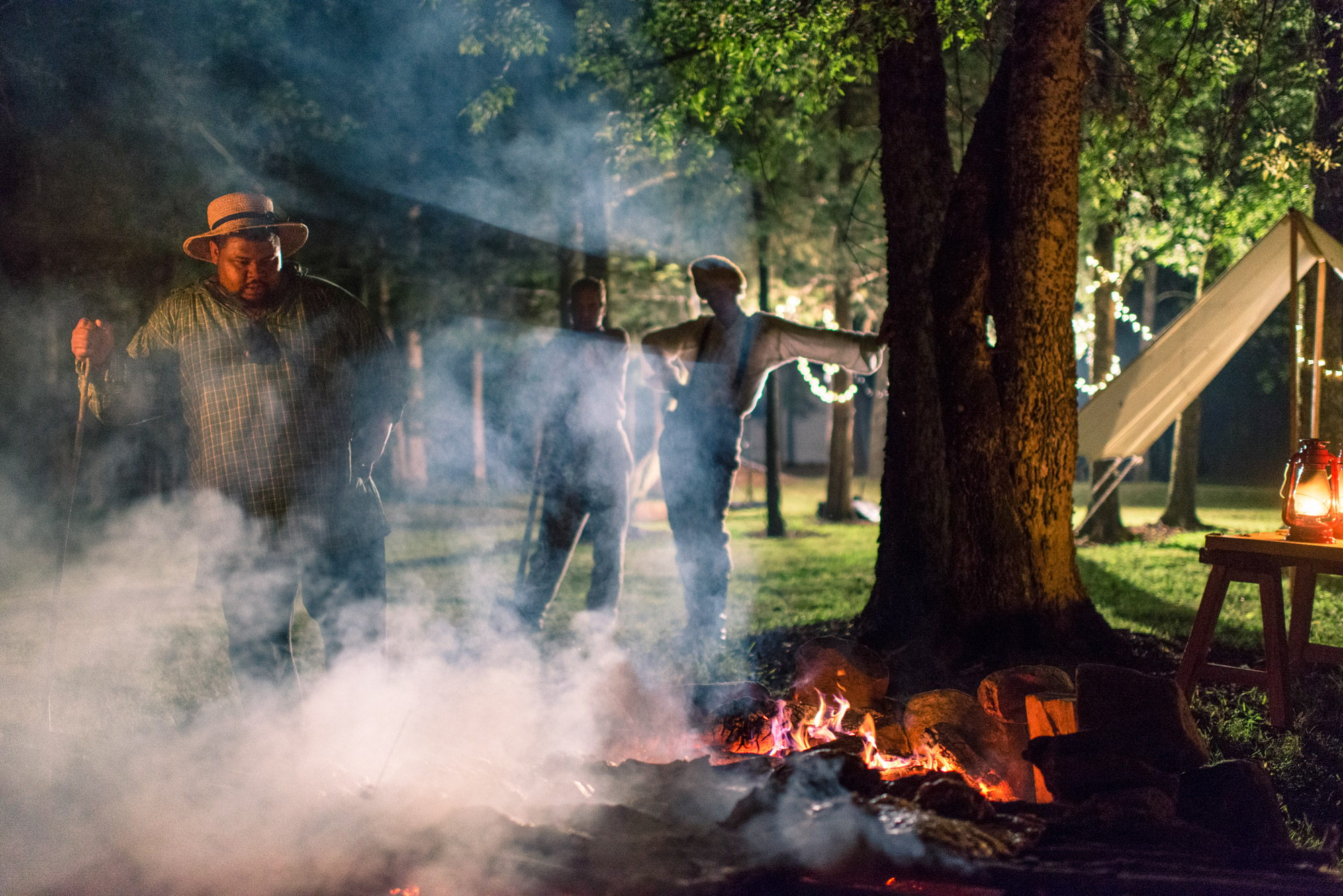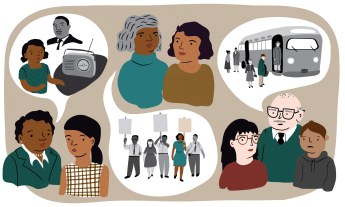Researching, celebrating and supporting African American food culture is Michael Twitty’s way to honor and heal those who came before.
To chef and blogger Michael Twitty, a plate of stewed okra is much more than a popular soul-food dish — it’s a form of African American history. For many years, people in New Orleans referred to okra as salade du fevi, and it was thought that fevi was a corruption of French for fava beans. “I was like, I know this ain’t right,” says Twitty. For starters, fava beans and okra are different vegetables. “I researched it, and fevi is the word for okra in Fon, the main language of Dahomey,” an ancient African kingdom that is now part of Benin. The first shipment of Africans brought to New Orleans came directly from the Dahomey slave port of Ouidah, from which a million Africans were dispatched to the New World between the 17th and 19th centuries. In one dish, he says, “you can see a story of the movement of people and culture from one place to the next.”

Twitty, a TED Fellow, is an active practitioner of the traditions of antebellum, or pre-Civil War, cooking. He is striving to reclaim and revive this lost heritage with The Cooking Gene, a project that connects African Americans with their ancestral food ways in order to remember the importance of the lives of enslaved people. It also represents his attempt at culinary justice.
Culinary justice is the idea that people who have been traditionally oppressed possess a right to be recognized for their cooking contributions — and they have a right to the value of those contributions. As Twitty points out, the term doesn’t only refer to enslaved African Americans; the disrespect of and disenfranchisement of any group’s culinary history, ingredients and food culture is a global phenomenon. “It’s critical that we respect the people and the tenets by which they created their culture and their food,” he says.

Much of Southern cuisine is based on the fruits of the slave trade. As an example, he points to the region known as the Carolina-Georgia Lowcountry, which encompasses the cities of Charleston and Savannah, both known today for their restaurants specializing in Southern food. “This cuisine is based on rice, which was brought from West Africa and cultivated by enslaved people in the 18th century, from Senegal, Sierra Leone, Liberia and beyond,” says Twitty. “Rice made millionaires out of slaveholders, and it was responsible for bringing just about 50,000 Africans to the South alone for their expertise in growing it. Men cleared the fields and planted rice, and women cultivated and processed it.” Twitty investigates the African ancestry of modern soul food — “the granddaddy of soul food”, as he calls it. “My scope of references are pre-colonial Africa in the 16th and 17th centuries, onward to the 19th century in America and the West Indies and Brazil and Haiti.” He studies the wild game, wild fish and domesticated animals of the region and period, as well as the flavor profiles of heirloom varieties of plants that are available today. He goes to Southern plantations and other historic sites, where he cooks antebellum cuisine for visitors and teaches them about what they’re eating — providing a full taste of African American history.

In the latter half of the 20th century, the culinary value of Southern cooking began being adopted by white chefs. “There was a movement by Black people to leave behind cooking, which was considered demeaning, to seek white-collar jobs,” says Twitty. A number of factions in the Black liberation movement opposed soul food because they considered it the imposed foods of the slavemaster. For instance, Elijah Muhammad, leader of the Nation of Islam, told his followers not to eat it, and some Black Muslims to this day eschew such dishes as sweet potato pie. In addition, “those of us who did go to culinary school wanted to prove ourselves,” he says. “We wanted to make French food and gourmet food so we could say we did more than just soul food. Meanwhile, some white chefs legitimized food with African origins and they rose in popularity.”
In itself, cooking soul food is not a bad thing, says Twitty. “This is not about whether a white person makes collard greens,” he points out. But he really wants chefs to know and consider the origins and implications of what they’re serving. He considers it exploitative when chefs ignore history and just think about what they’re doing as exotic or trendy.
He wants the Southern communities where these foods originated to benefit from the cuisine’s popularity. “There are Southern fast food chains, mid-level restaurants, high-end restaurants. Many of the recipes, by and large, have the touch and the feel of African people, but how many of these businesses is owned by a Black person, or has a Black cooking staff?” Twitty asks. One of the goals of his Cooking Gene project is to encourage African American farmers, fisherfolk, community farmers and restaurant owners to produce and promote sustainable, local healthy fare for their neighborhoods and for the world at large. “How can we build opportunities for our young people to be agronomists and grow the food, and market those heirloom crops that were unique to our local, Black Southern communities?” says Twitty. “When that white chef buys his produce from an African American producer growing an African American heirloom and employing African American kids, taking them off the street, teaching them how to cook and eat and their history — that’s culinary injustices being reversed.”

Twitty’s ultimate aim: to teach the world, through food, that his people’s lives meant something. “We need to get over our fear of the plantation and slavery and the old South. It happened, and it was real,” he says. “And everybody who sets foot on American soil after those people lived and died, from their descendants to the slaveholders’ descendants, to those who were deputized to keep them in check, to those who were immigrants who came after them, are beneficiaries of their legacy, and a lot of that is through food,” he says. “What do you have left in the South? History, music, art and food. Who built those antebellum mansions? Who showed the South how to dance, how to play a fiddle with soul, how to make trumpets talk in African tongues? And who cooked the food that fed this whole enterprise? Black people.”
“These people were not the background. You visit some plantations, and they’ll tell you about the architecture and decor and never once mention the name of a single Black person that built the house, or farmed or cooked the food,” he continues. “We have to change this — we have to change our relationship to our history, change our relationship to the present and change our relationship to the future so that we can grow beyond this angst and this negative energy.” Declares Twitty, “I’m doing it by cooking. That’s all I want to do.”











